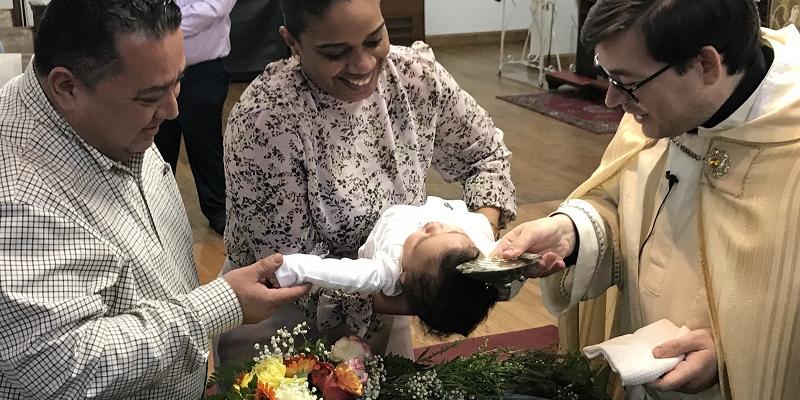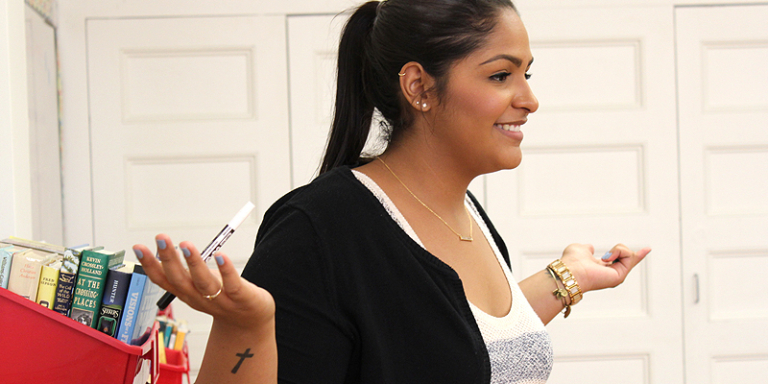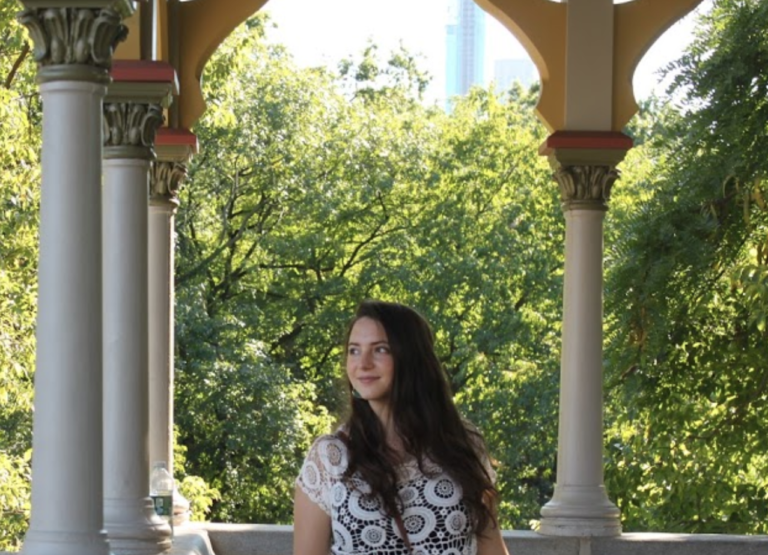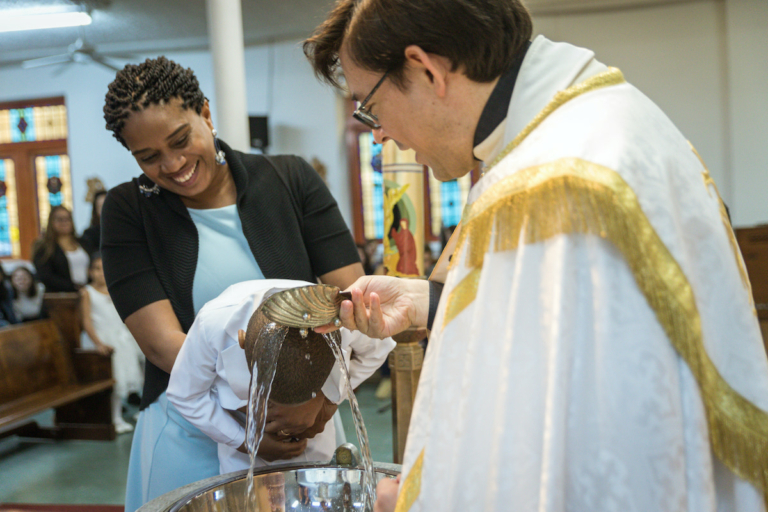This April, 25 disciples in the El Camino programs at Brilla College Prep, Brilla Middle School, and Brilla Veritas will receive the Sacraments of Initiation, joining the more than 70 students who have already received their Sacraments.
El Camino, which means “the way,” aims to help underserved children shine through Catholic faith formation, character development, and homework support through a fun and enriching after-school program. It runs each school day from the end of school to 5:30 pm.
When Scott Hamilton and Stephanie Saroki de García, the founders of Seton Education Partners, launched what would become El Camino, they imagined the program would have broader impact than on the students alone.
“We set out to create a religious education program for children who were not receiving a rich faith experience through a traditional Catholic school or catechism classes at their church,” says Hamilton. “But we theorized that our program would also reignite the faith lives of their parents.”
While the initial goal of the program was to reach the students, Hamilton and Saroki de García were not sure if or when the program might start reaching the parents. They didn’t have to wait long. The results were almost immediate.
“We heard stories right away about the kids in our program coming home and at dinner, right before they started eating, they would say to their parents, ‘Wait a minute, we haven’t said grace yet,’” Hamilton recalls. “Like most parents would in responding to their children, they picked up on this and started making it part of their routine. And they heard the same thing on Sunday morning, ‘Are we going to go to church?’”
Many parents feel less than adequately prepared to teach their children religion. There are many reasons for this. For some, it is partly because of a misguided presupposition that “religion” is something taught just by experts—religious men or women, or teachers in a school setting. For many, it’s the lack of formal religious formation themselves.
Children who are in the midst of a rich, all-encompassing formation experience, whether it’s learning the faith or a new activity, do not tend to have the same reservations. They are happy to share what they are learning and invite others into the experience—and this includes their families.
“The kids we are catechizing are not old enough to go to church by themselves, which is the reason why our work with the families is extremely important,” says Yeime Valle, Head of Programs at El Camino, which shares a unique partnership with the Brilla Charter Schools Network in the South Bronx. “We are bringing the Church to people. It’s not that the Church is not accessible; the Church is there and very much accessible. It’s just that we have lost our connection, our ability to see God in the institution. The majority of our families are Latinos. They grew up in their countries going to church every Sunday with their families. Church was a community for them, part of their lives. They have come to this country in which there is a different language and culture and their situations are different. A lot of them have limited income and education and have to work really hard, more than one job many times, to survive. So all of these things make them feel they are alone and burdened. With El Camino we are reminding them that they’re not alone and they have dignity regardless of their situation just because they are children of God.”
The Seton team has developed a program to deepen parents’ ability to be examples of their faith for their families, building off the knowledge they were gaining from their children.
In addition, four times a year and in alignment with the liturgical calendar, parents come into the schools, which house the program, for a family faith night. El Camino offers daycare for the children and brings in pastors and catechists to deliver formal instruction the Catholic faith and on how a family’s routine might look if it was infused with the Catholic faith. Families have the opportunity to pray, talk to one another, and share a meal.
“I feel that as a society we have forgotten the importance of sitting at a table and eating as a family together,” says Valle. “During all our family faith nights, we have adults, their children, families sitting together and eating.
“To me, if you’re sitting there, it’s because there is something that you want. You have made an effort to have your children in a program. I always ground everything on the necessity for the family. Yes, we make our choices as adults to be in the Church or to not be in the Church, and that’s okay. We have to live with that. But what do you want for your kid? And every single parent, no matter who you are or what you have, you want the best for your children. So you know that Christ is the right thing for your children. This is where we start. We ground all our conversations around that.”
Parents, just like their children, appreciate the opportunity to learn.
“I would recommend El Camino to other parents,” says a parent of a third grader enrolled in El Camino. “It’s a place where your child can learn about God and do different activities. And it’s a place where parents can come together and learn about themselves and about God.”
Faith and family, after all, are the core of the mission of El Camino.
“We want to bring the whole family back to the Church,” says Valle. “To me, that’s our mission. We want to be the bridge to take them back to church, back to Christ.”
Faith and Family



